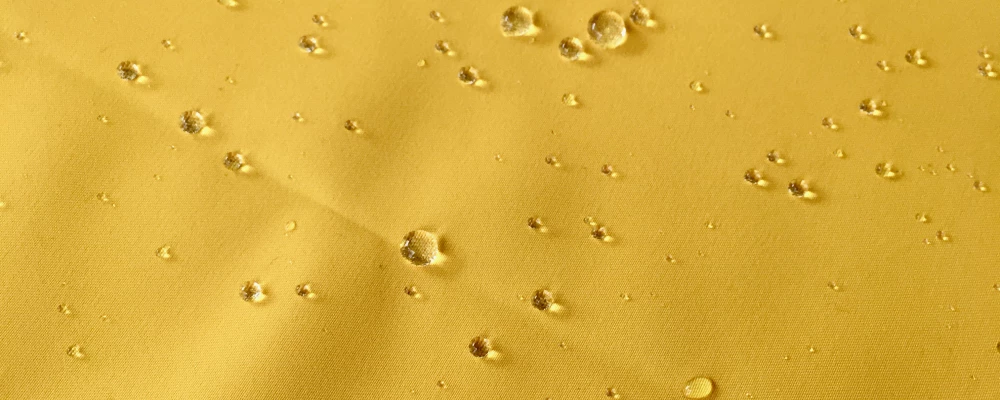
What can you make with our Recycled Polyester Satin fabrics?
Our soft ivory recycled polyester satin has been a staple in our Offset Warehouse collection for a couple of years now. We've seen it used in the most creative of ways, including in campaigning against ocean plastic. This fabric is made from collected post-consumer plastic bottles (PET), so if there is a project you're making better suited to synthetics, perhaps consider a recycled rather than virgin source.
Why use recycled polyester?
The best outcome of course, would be that we stop using oil for textiles completely and it all comes from recycled sources. As it is, there isn't the infrastructure in place to fully recycle polyester fibres into new polyester fibres at the same quality, so as a stop gap, the use of PET from post-consumer waste can reduce textile production using virgin sources. Obviously, not using single use plastic bottles would also be the best outcome, but again, until there are more suitable alternatives in place - especially for certain countries that need to drink bottled over tap water - there is a need to find a source for this waste. Girlfriend Collective who make their sportswear out of recycled materials gives a great run down on this.
According to WragWrap, a company that make re-usable fabric gift wrap using recycled polyester textiles,
rPET polyester fabric has a 50% lower carbon footprint than organic cotton. Of the synthetic fibres, rPET polyester fabric has almost a 90% lower carbon footprint than nylon while rPET polyester fabric has a 75% lower carbon footprint than [virgin] polyester.
They also give these facts about rPET that they say they have researched and monitored carefully:
- Recycling 1 ton of PET containers saves 5.7 square metres of landfill space.
- 90% less water is used in making recycled polyester versus polyester.
- rPET requires 70 percent less energy than virgin fibre production.
- 1 kg of rPET (made with 100% post-consumer waste) can keep 60 water bottles out of landfill.
- 51 billion plastic bottles go to landfill annually worldwide.
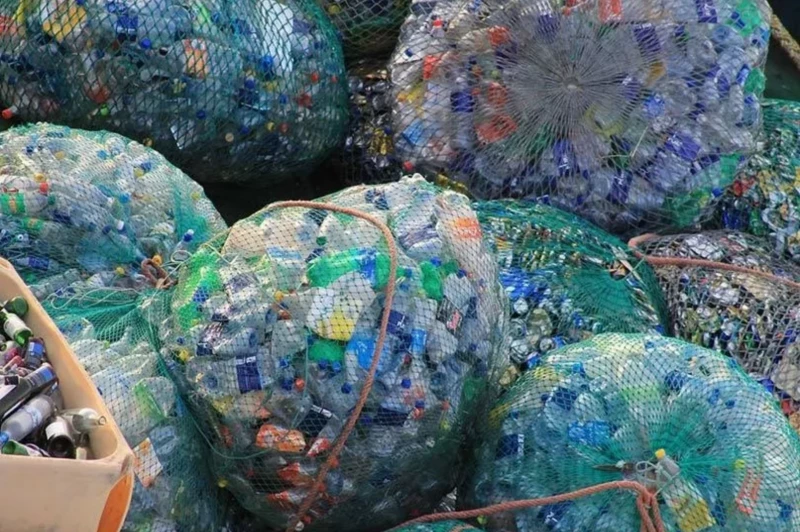
Currently, rPET textiles cost more than virgin polyester because the cost of oil is cheaper than the whole processing stream of collecting, sorting and melting PET ready for fibre spinning. So much PET goes to landfill each year mostly because either there is a lack of resources in recycling coming from councils, and incorrect disposal coming from apathy or confusion from the public. So as it is, only 7% of PET is recycled. If circular systems were in place, there'd be more raw material to create recycled fibre, and therefore decreasing the price, consequently increasing options and implementation from brands in their collections.
Tell me about your recycled polyester fabric!
In a gorgeous soft ecru colour, this fabric truly glows. It is soft, supple and drapes beautifully. One side has the sheen that you would expect from a satin weave and feels slinky on the skin, while the other has a much more matte, almost brushed finish to it like a peach. You can use either as the right side depending on the look and purpose of your product.
As mentioned, we've seen it successfully printed on owing to the tightly structured weave that absorbs ink readily. This is actually one of the pros for synthetics: as they absorb dyes better, they are more colour fast (less run off) so requiring less auxiliary chemicals during production. Sublimation printing can be done at home using heat transfer paper.
The weave, and synthetic composition, also means it has a small amount of UV protection, has been tested for chlorine/salt resistancy and will naturally dry quickly. It has a small amount of water resistance, known as Standard Durable Water Repellency (DWR) where water beads on the surface, though will become wet when saturated. So it's already perfect you can read for outdoor and resort clothing.
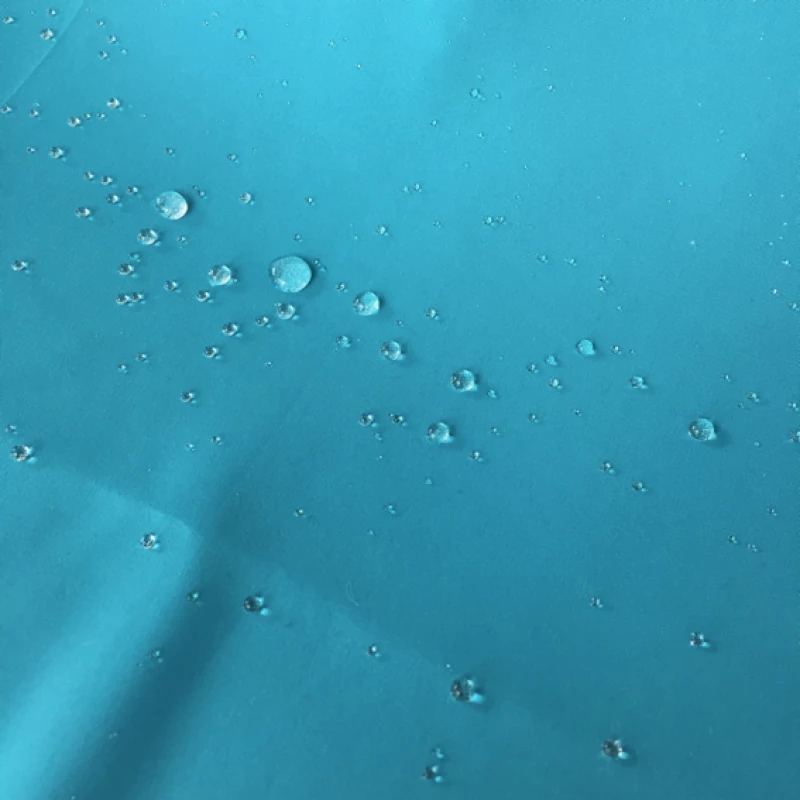
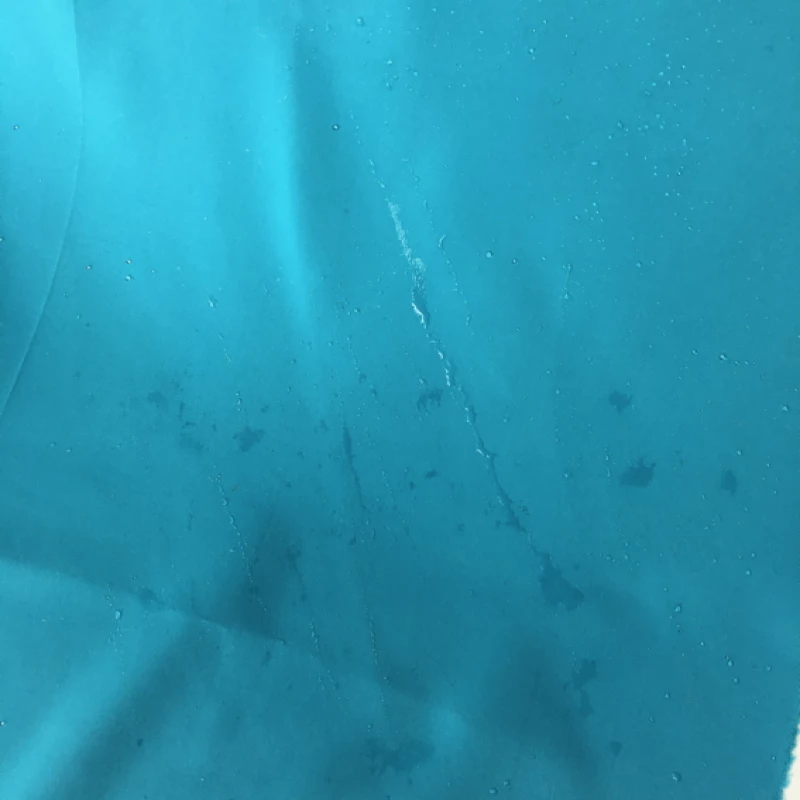
What about the ethical production?
The OHSAS 18001 certification is one of the International Standard for Occupational Health and Safety Management Systems, providing a framework for the effective management of OH&S including all aspects of risk management and legal compliance. It's sometimes found that recycling facilities are buying in virgin plastic bottles rather than collected post-consumer waste, so this certificate not only ensures safe import of the material, but management of health and safety for workers too.
And how is it sustainable?
Recycled materials ensure that post-consumer waste is utilised rather than virgin resources. As this is 100% polyester, it can be recycled again (in the right system). Due to the tight weave and finish, it is long-lasting ensuring a durable product.
GRS (Global Recycle Standard) is an international, voluntary, full product standard that sets requirements for third-party certification of recycled content, chain of custody, social and environmental practices and chemical restrictions. The production facility is GRS-certified for this particular fabric.
ISO:9001 is a quality management certification, ensuring that the raw material does come from post-consumer waste and is managed in accordance with health and safety regulations for synthetic polymers.
ISO:14001 refers to an environmental management certification that supports a framework for the measurement and improvement of environmental impact.
Oeko-Tex Standard 100 certification ensures that the fabric has been tested for harmful substances and that the textile is therefore harmless in human ecological terms. Tested by independent regulators, it cannot be falsified.
The Green Mark environmental management certification gives guidance to producers on legislation so that they rigorously follow procedures.
What can I make with it?
The ivory has been with us for some time now, so we're exceptionally pleased that the producer has been able to innovate to release new vibrant shades. The range can sit nicely against any skin tone, and are classic in a fun way that despite their vibrancy has trans-seasonality.
Mustard, teal, khaki, turquoise and bright blue - and ivory.
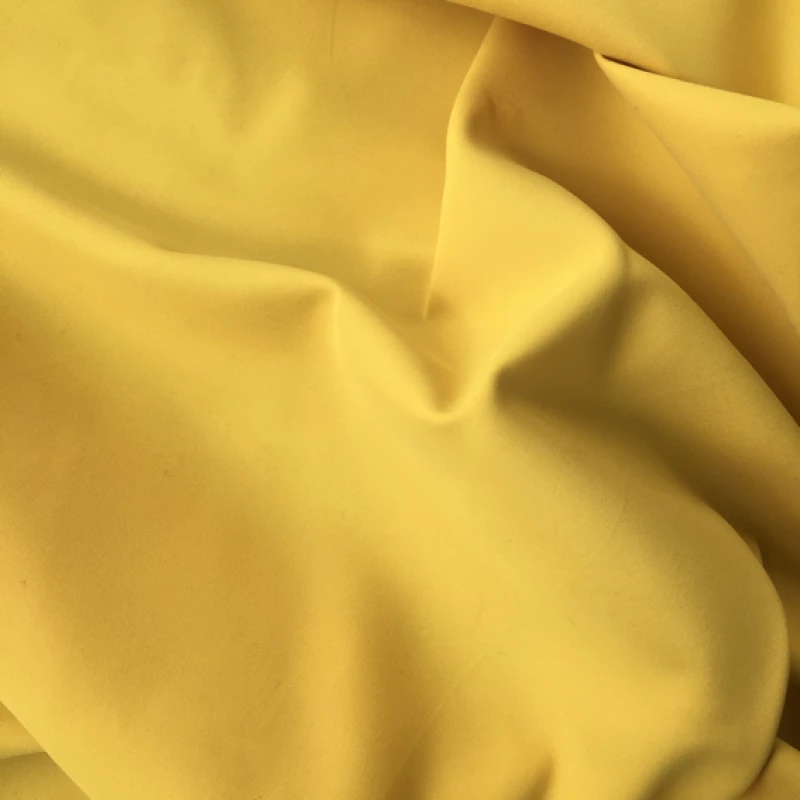
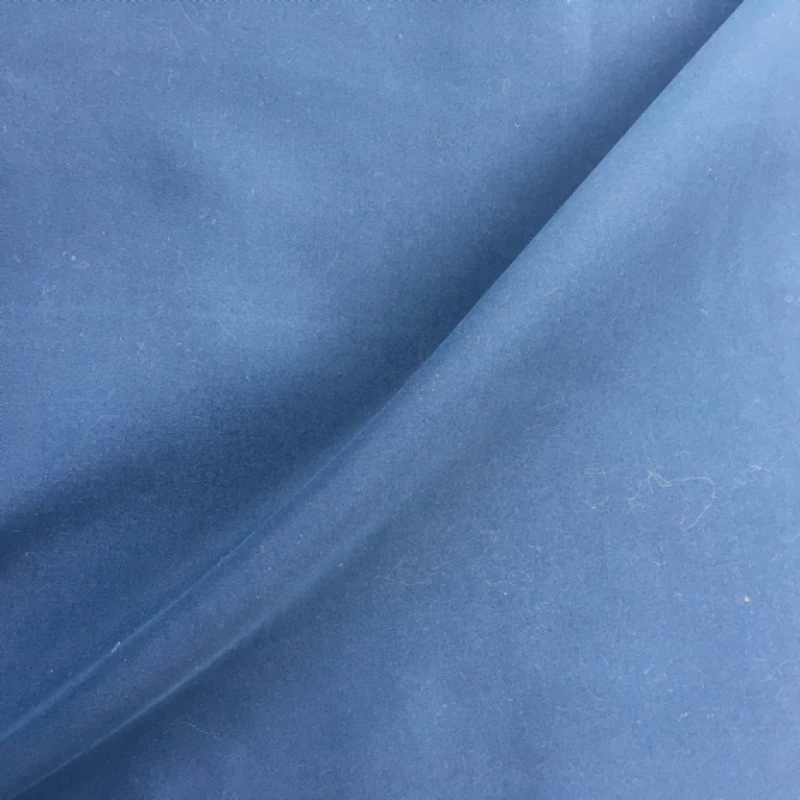
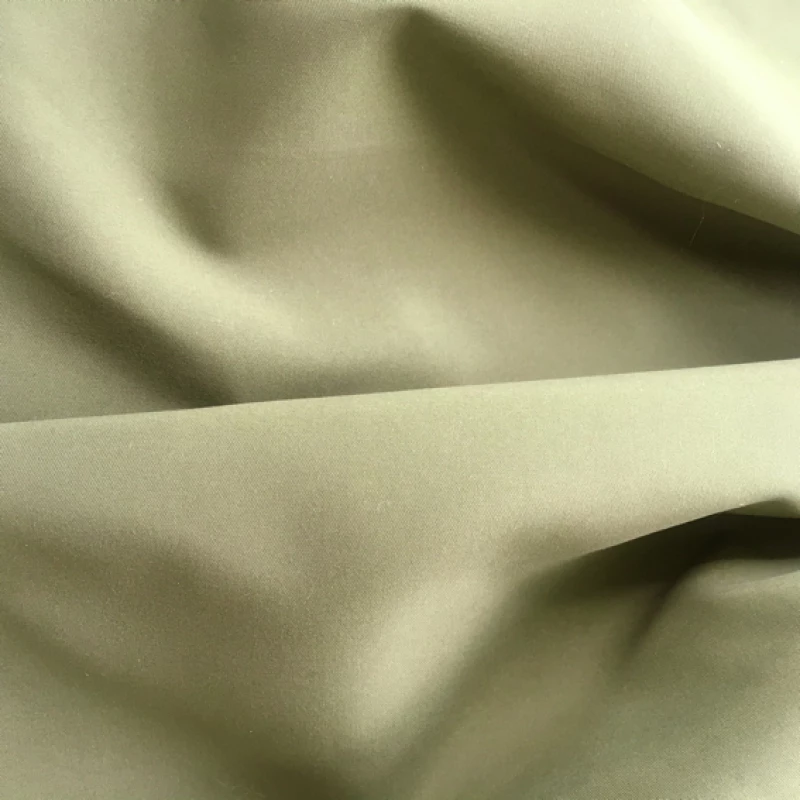
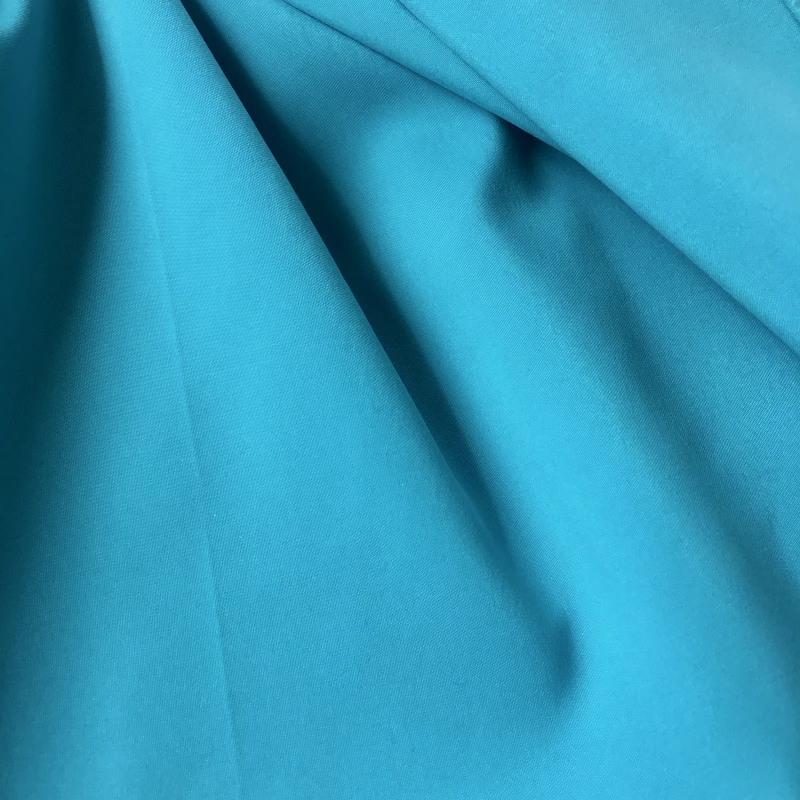
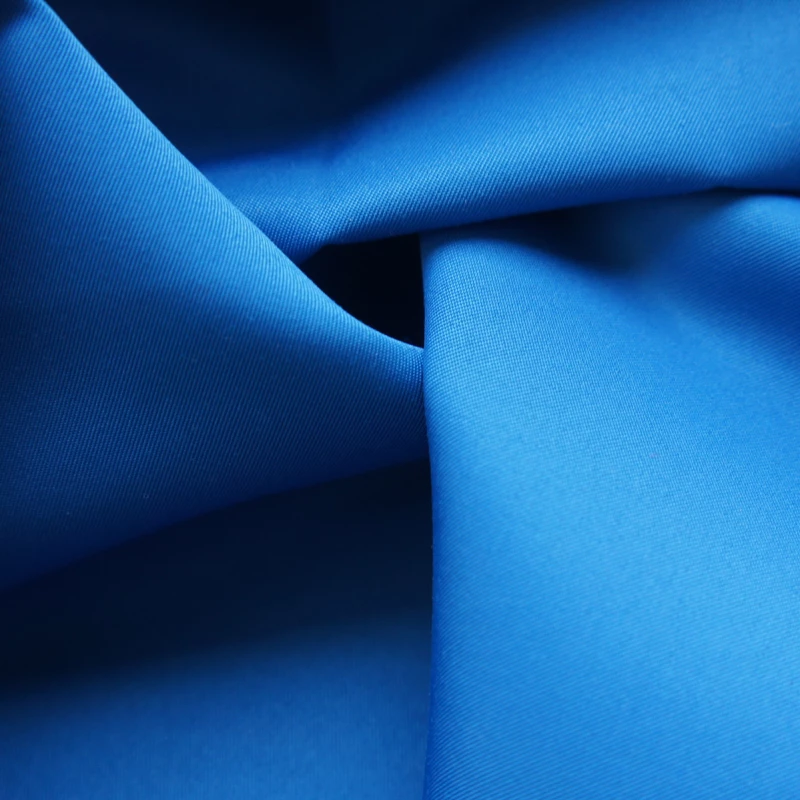
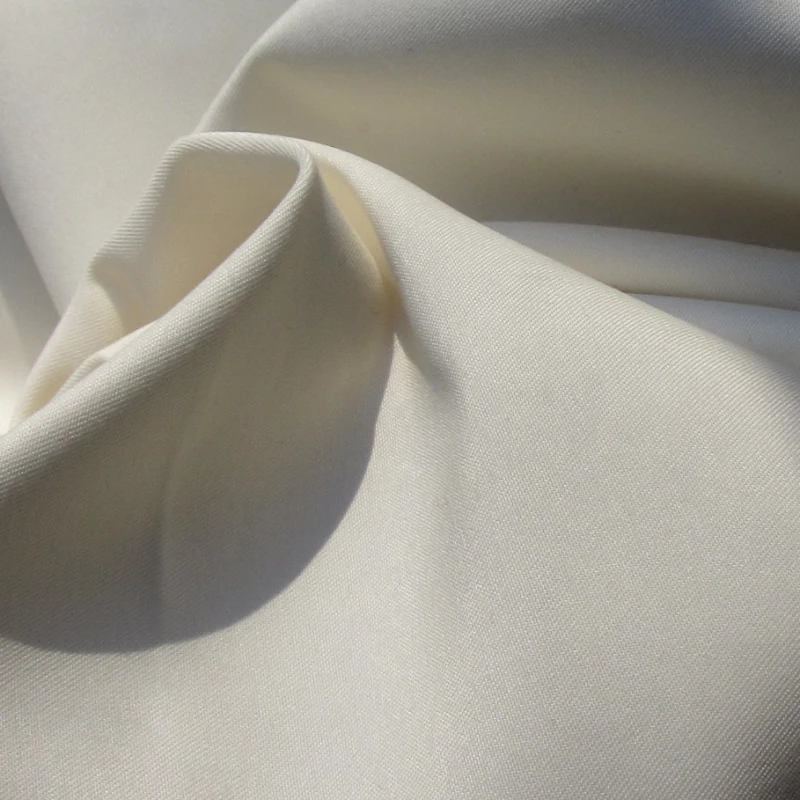
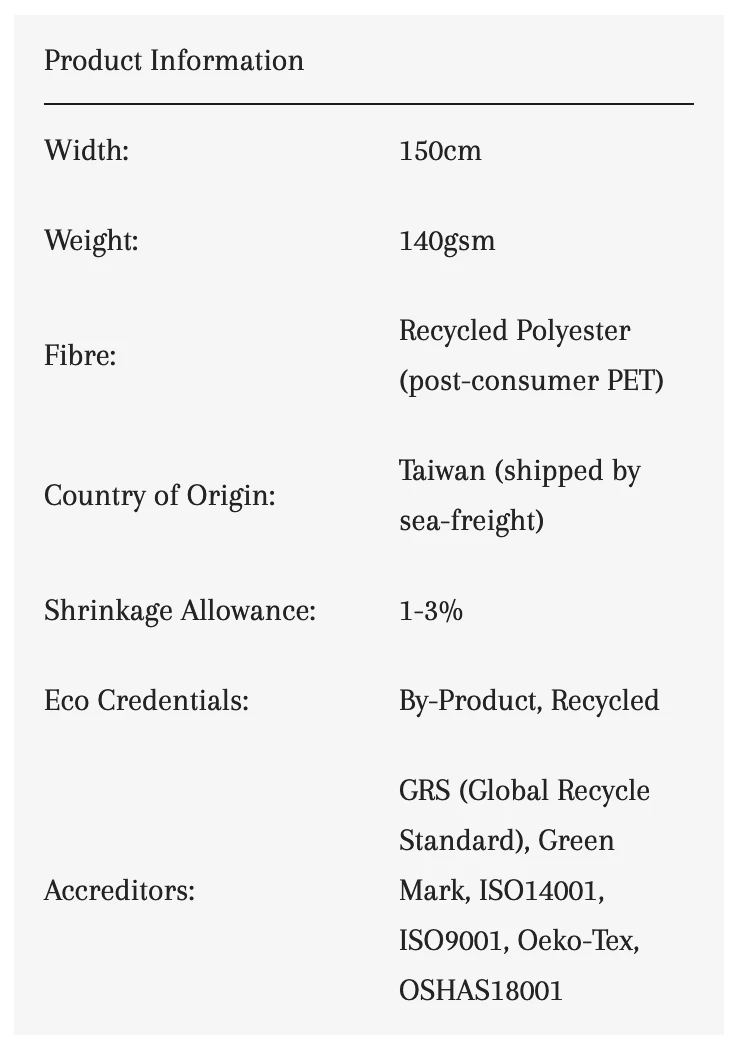
Our indie pattern selection
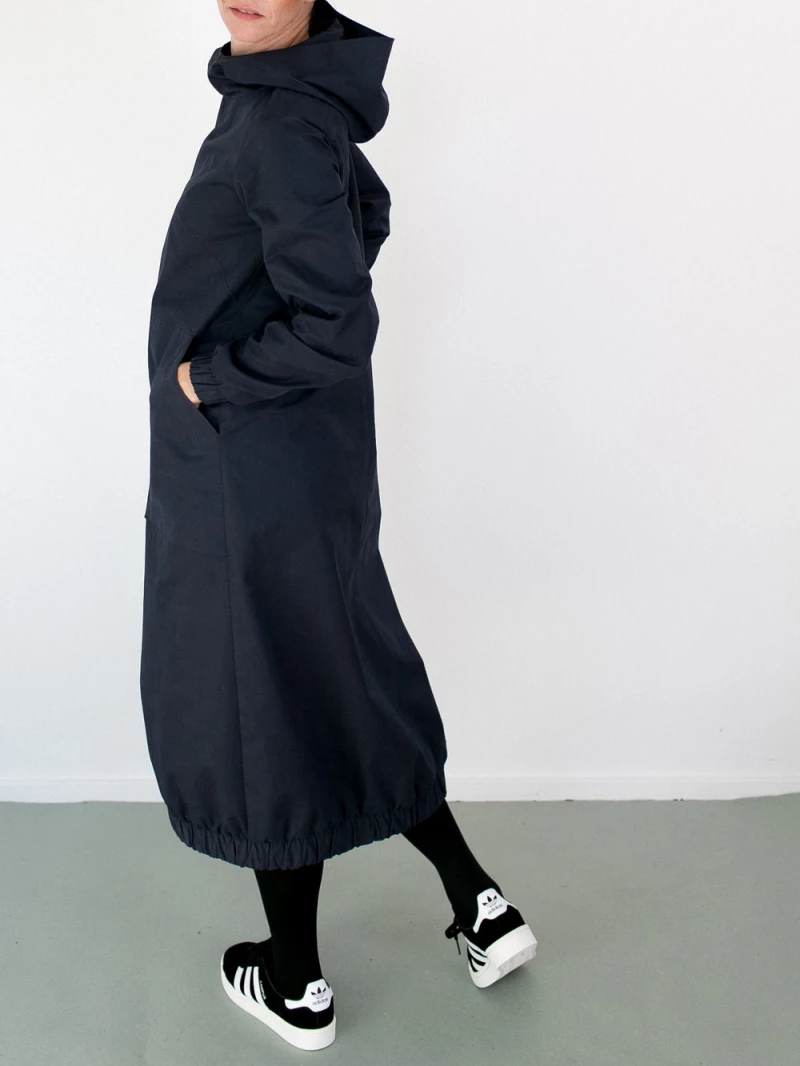


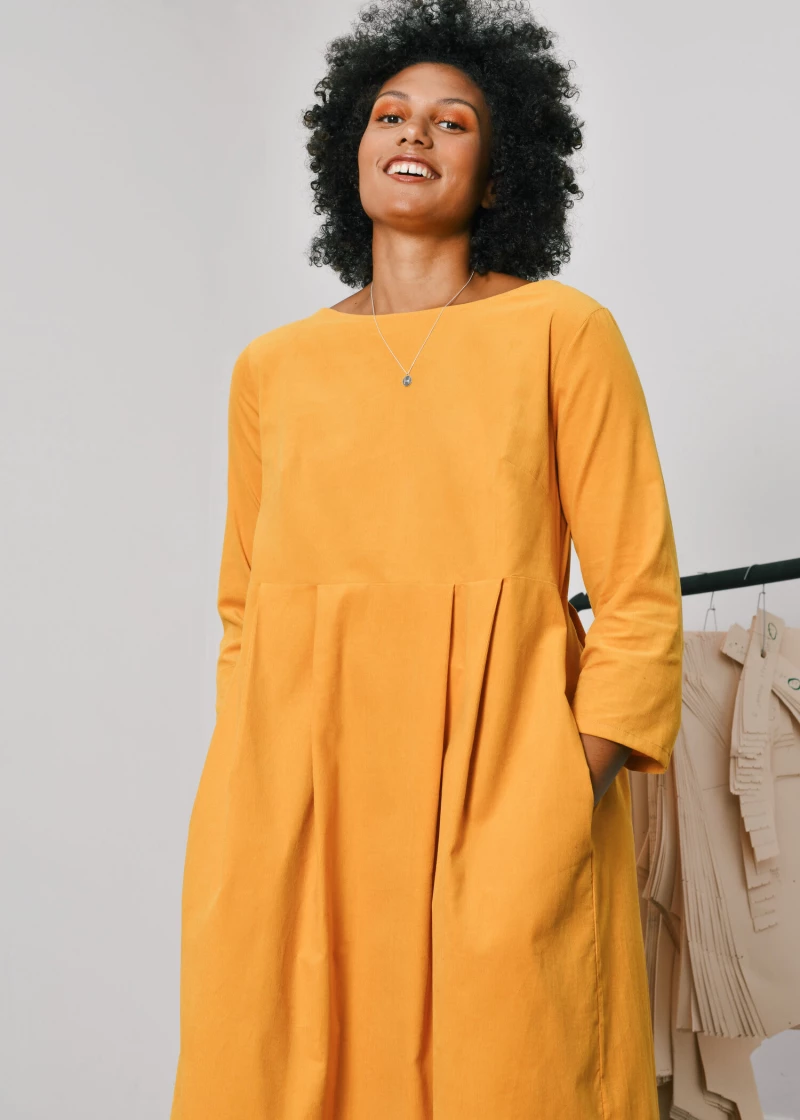
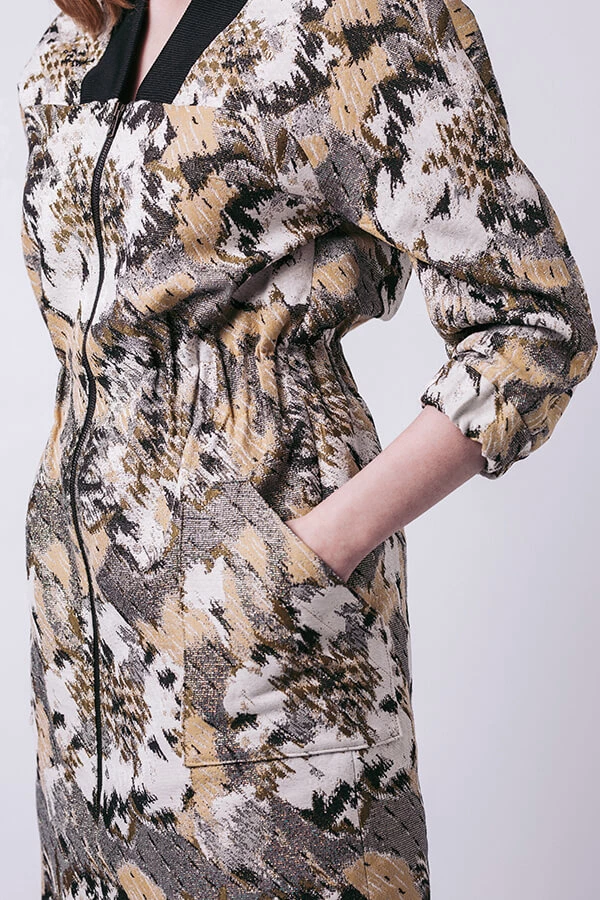
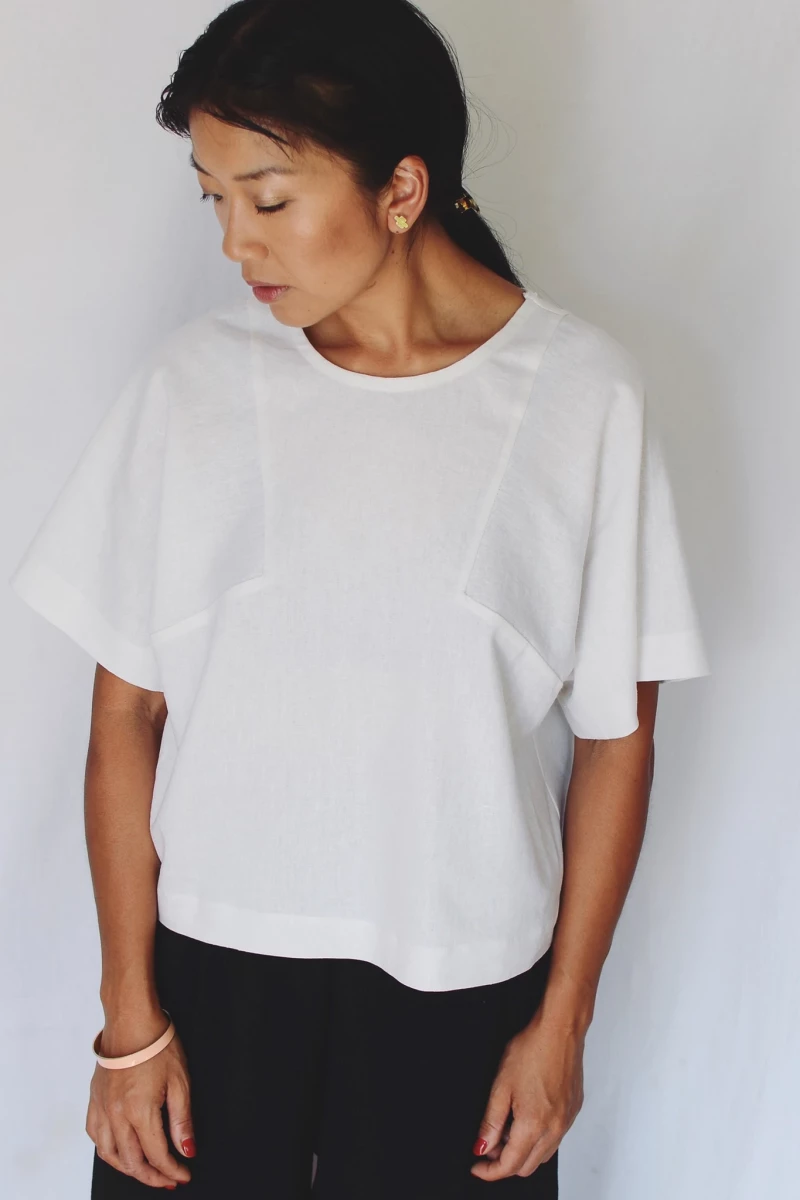
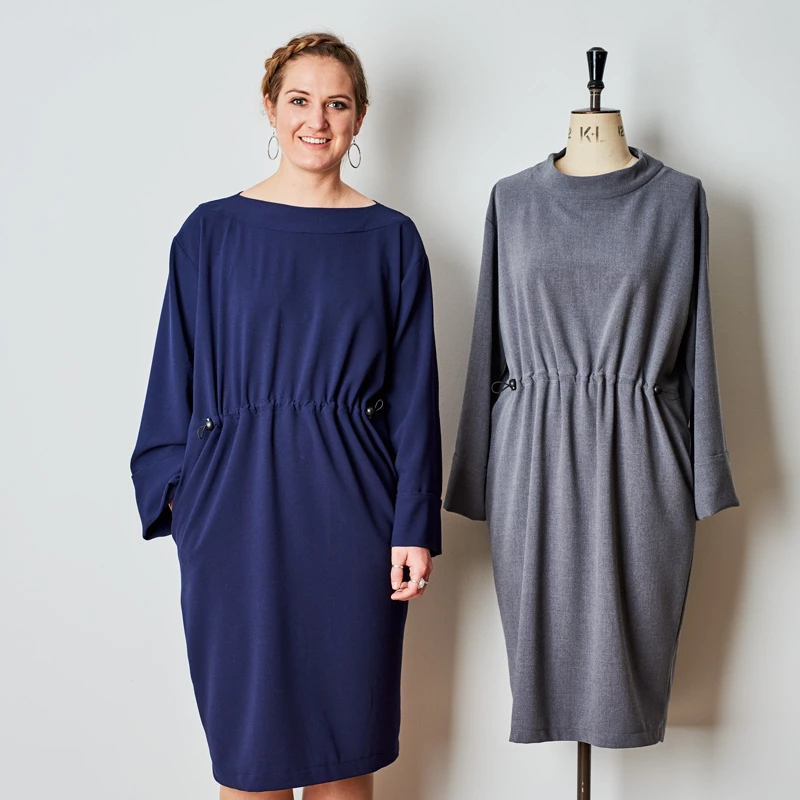
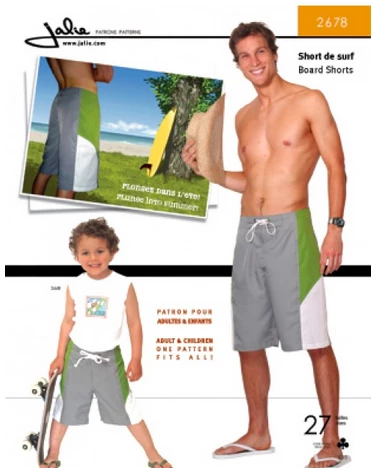
How can I buy them?
The new colours are on pre-order in a limited quantity. We'd like to ensure we're not ordering something that no one wants (excess is horrible!) but also want to give you the opportunity to purchase what you'd like without FOMO.
As a thank you for your patience - we expect delivery towards the end of July 2020 - please use the code 350PRE10 for 10% off the per metre cost at checkout (valid until Sunday July 5th 2020 23:59 BST). For any wholesale orders of 25 metres+ please get in touch ASAP as there isn't much fabric to go around!
Find them all here.
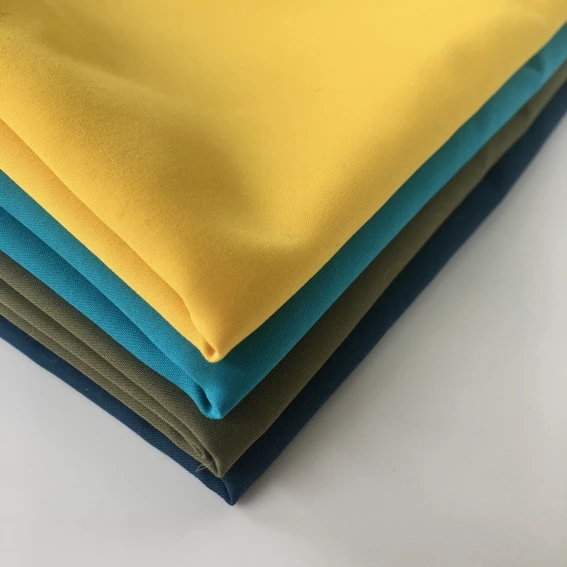
Read more:
How Sustainable Is Recycled Polyester? [Fashion United, 2018]
Recycled Polyester Commitment [Textile Exchange]
